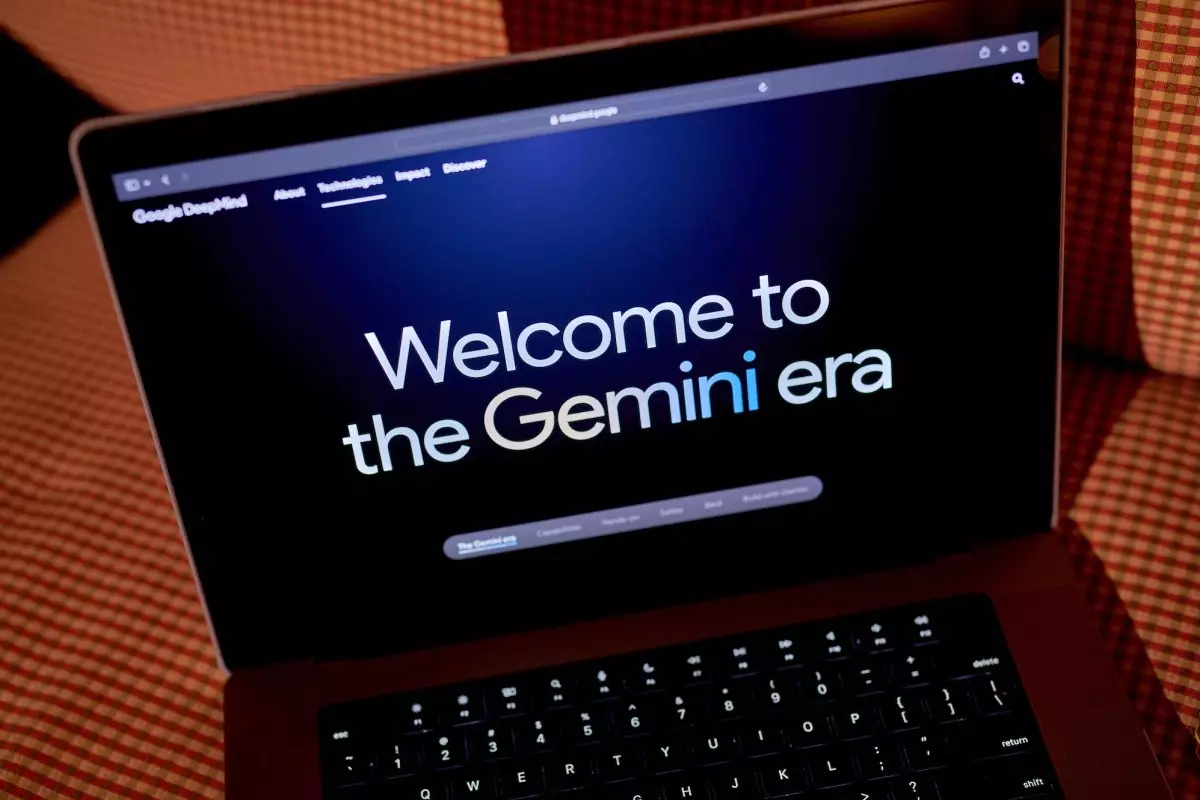Artificial intelligence is at the forefront of technological advancement, with companies like Google and Anthropic pushing the boundaries of what AI can achieve. As competition intensifies, the ways in which these organizations assess their technologies become pivotal in determining their place in the market. Recent developments have suggested that Google’s Gemini AI is undergoing rigorous comparison exercises against Anthropic’s Claude model, raising questions about best practices in AI performance evaluation.
In an industry characterized by rapid innovation and fierce rivalry, tech firms are under immense pressure to produce superior AI models—this includes evaluating the performance of their own solutions relative to those of competitors. Internal communications indicate that contractors hired by Google to enhance Gemini are tasked with evaluating and scoring how well the model performs against outputs from Anthropic’s Claude. While Google has confirmed the existence of these comparisons, it remains silent on whether it has received appropriate permissions from Anthropic to utilize Claude in these assessments.
This practice is notably different from traditional benchmarking methods typically employed in the AI sector, which often rely on an array of predetermined tests rather than raw comparative analyses against direct competitors. Google’s approach—the evaluation of contractors assessing qualitative aspects of both AI systems—points to a nuanced strategy to ensure that Gemini performs not just adequately, but exceptionally in its field.
The evaluation process employed by Google’s contractors is meticulous. They are instructed to analyze the outputs from both Gemini and Claude against various criteria such as accuracy, truthfulness, and verbosity, dedicating as much as 30 minutes per individual prompt. This depth of analysis showcases a commitment to robust qualitative assessment, which is crucial for refining AI systems that need to navigate complex human conversations effectively.
Interestingly, reports from contractors reveal that Claude frequently demonstrates a stronger emphasis on safety compared to Gemini. For instance, while Claude might avoid providing responses to potentially dangerous prompts, Gemini has faced criticism for yielding responses considered to be significant safety violations. This discrepancy raises critical concerns about the inherent safety mechanisms built into these models and their implications for real-world applications, particularly in sensitive areas such as healthcare or legal advice.
Ethical Considerations and Proprietary Boundaries
Beyond technical specifications, the conversation around AI evaluation also engages with ethical considerations and intellectual property rights. Anthropic’s terms of service notably restrict clients from using Claude to build competitive products or train rival models without prior consent, stirring discussion about the ethical implications of cross-comparative evaluations between competing AI systems. Given that Google is a substantial investor in Anthropic, any potential overlap in utilizing Claude’s output could represent a significant conflict of interest.
Shira McNamara, a representative from Google DeepMind, stated that while they compare model outputs for evaluation purposes, it is inaccurate to suggest that Anthropic models are being employed in training Gemini. This affirmation highlights the complexities involved in AI research and development, where transparency is paramount amidst competitive pressures.
Despite the intention behind these evaluations, the contractors’ concerns about rating Gemini’s outputs in areas outside their expertise introduce additional challenges for Google. The stakes are high as inaccuracies in sensitive domains could lead to misinformation, undermining public trust in AI systems. Google’s decision to empower contractors to assess Gemini’s performance could be viewed as an attempt to embrace accountability, but it also highlights the inherent risks that come with reliance on potentially underqualified evaluators.
Furthermore, the rapid advancement of AI technology makes real-time success metrics increasingly difficult to define and maintain. Companies like Google, while leading the charge in innovation, must remain vigilant in ensuring the reliability, safety, and acceptance of their models among end users.
As Google’s Gemini and Anthropic’s Claude exemplify best practices in AI development, the methods employed for evaluating these models will shape the future landscape of artificial intelligence. The interplay of competition, safety, and ethical standards stands crucial in determining the viability and user acceptance of emerging AI technologies.

